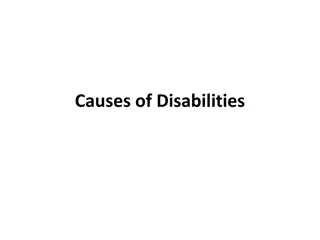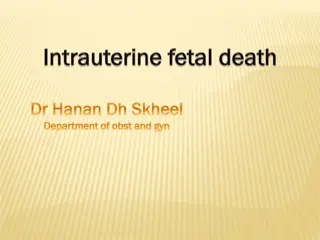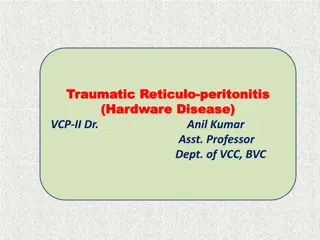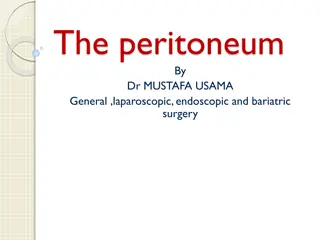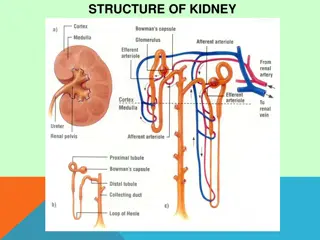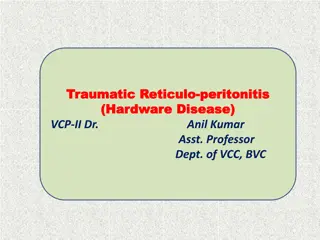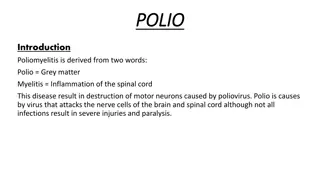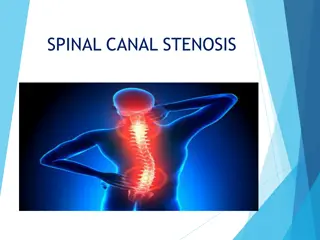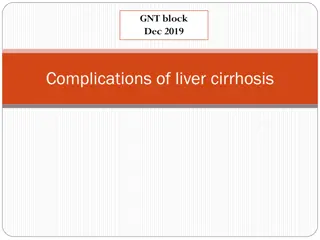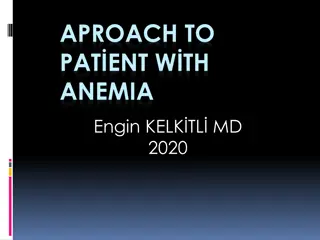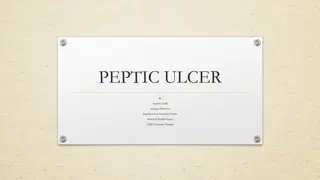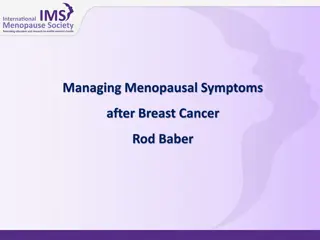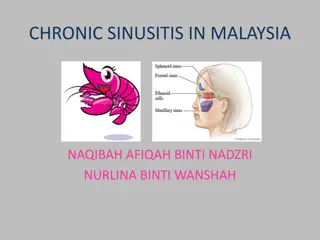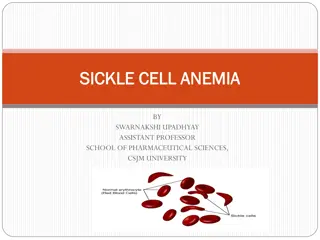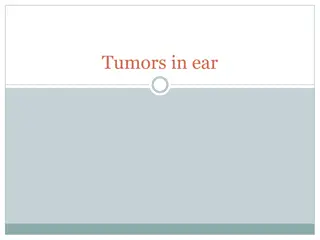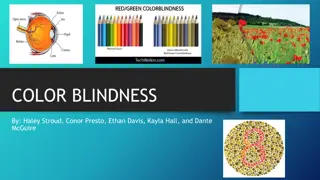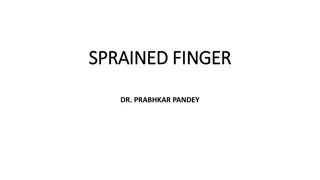Understanding Peritonitis: Causes, Symptoms, and Management
Peritonitis is inflammation of the peritoneum, often caused by bacterial infections or other factors like bile leaks or ruptured ectopic pregnancies. Recognizing the signs, such as sudden abdominal pain and tenderness, is crucial for early diagnosis and treatment. Effective management involves treating the underlying cause promptly, typically requiring surgical intervention. Complications of peritonitis can be severe, affecting various body systems. Proper understanding and timely intervention are essential for a successful outcome in patients with peritonitis.
Download Presentation

Please find below an Image/Link to download the presentation.
The content on the website is provided AS IS for your information and personal use only. It may not be sold, licensed, or shared on other websites without obtaining consent from the author. Download presentation by click this link. If you encounter any issues during the download, it is possible that the publisher has removed the file from their server.
E N D
Presentation Transcript
+ Peritonitis: Introduction and Management m.j.lee@sheffield.ac.uk @wannabehawkeye Mr M Lee, Clinical Research Fellow in General Surgery
+Outline What is peritonitis? Why is it important? What are the causes? How do we treat it?
+Peritonitis is Inflammation of the peritoneum
+Causes of peritonitis Type Causative agent Possible cause Bacterial Gram negative (coliforms) Gram positive (Staphylococcus) Bile Perforated viscus Spontaneous bacterial peritonitis Bile leak (post-op) Chemical Haematologic Blood Ruptured ectopic pregnancy
+Intraperitoneal space The peritoneum can hold >5L of fluid/pus/blood Large absorptive area
+Peritoneum Visceral On organs Autonomic Poorly localised Parietal Abdominal wall Somatic Well localised Location Innervation Sensation Foregut Lower oesophagus to D2 Epigastric Midgut Hindgut Transverse colon to upper rectum Suprapubic Anatomical limits D2 to 2/3 across Transverse colon Periumbilical Site of autonomic pain
+History Sudden onset (perforation) Poorly localised moving to one point of abdomen Lying still Speedbumps Rest my hand on it it s better or beg you not to examine
+Clinical Examination Localised vs generalised Point-tenderness vs rigid abdomen Systemically shocked
+Investigations Blood tests X-rays of chest and abdomen CT scan of abdomen B-HCG! ECG
+Treatment ABC Treat the underlying cause and treat it early Call a surgeon Source control Post-management support
+Not just a belly problem Complication of peritonitis Hypovolaemia Kidney failure Systemic Sepsis Paralytic ileus Pulmonary atelectasis/pneumonia Portal pyaemia
+Abscess formation Patient position Location of collection Standing Pelvis Supine Left or right paracolic gutter Suprahepatic/ sub-phrenic Supine
+ Primary peritonitis
+Primary Peritonitis Spontaneous Bacterial Peritonitis Ascites Immunocompromised (lymphoma/peritoneal dialysis) Diagnosis is an ascitic tap/blood cultures Treatment is broad spectrum antibiotics No operation!
+ Secondary peritonitis
+Case 1 25 y.o. male 1 day history of umbilical pain, poorly localised, going to right iliac fossa Off food Low grade fever Raised WCC (15). O/E Rebound tenderness and guarding in RIF
+Case 2 23 y.o. F Sudden onset low abdominal pain Acutely hypotensive Missed last period Referred to general surgery as ?appendicitis
+Case 3 50 y.o. male Smoker, diabetic Sudden onset abdominal pain, 10/10 Not settling with morphine
+Case 4 75 year old smoker B/g acid reflux, uses ibuprofen for arthritis Previous MI Sudden onset epigastric pain Board like abdomen
+Important considerations Pre-morbid status Assessing risk (P-POSSUM, ASA) Conservative treatment Palliation
+In summary Peritonitis is bad Toxins are absorbed Systemic upset Treat underlying cause and complications
+Further learning Good for basic knowledge Lecture notes in General Surgery (Ellis, Calne, Watson) Bailey and Love s Short Practice of Surgery Good for quick revision Oxford handbook of surgery Surgery at a glance Experience is the best tutor for emergency surgery and peritonitis. Visit the surgical admissions unit and emergency theatre to learn more m.j.lee@sheffield.ac.uk @wannabehawkeye


